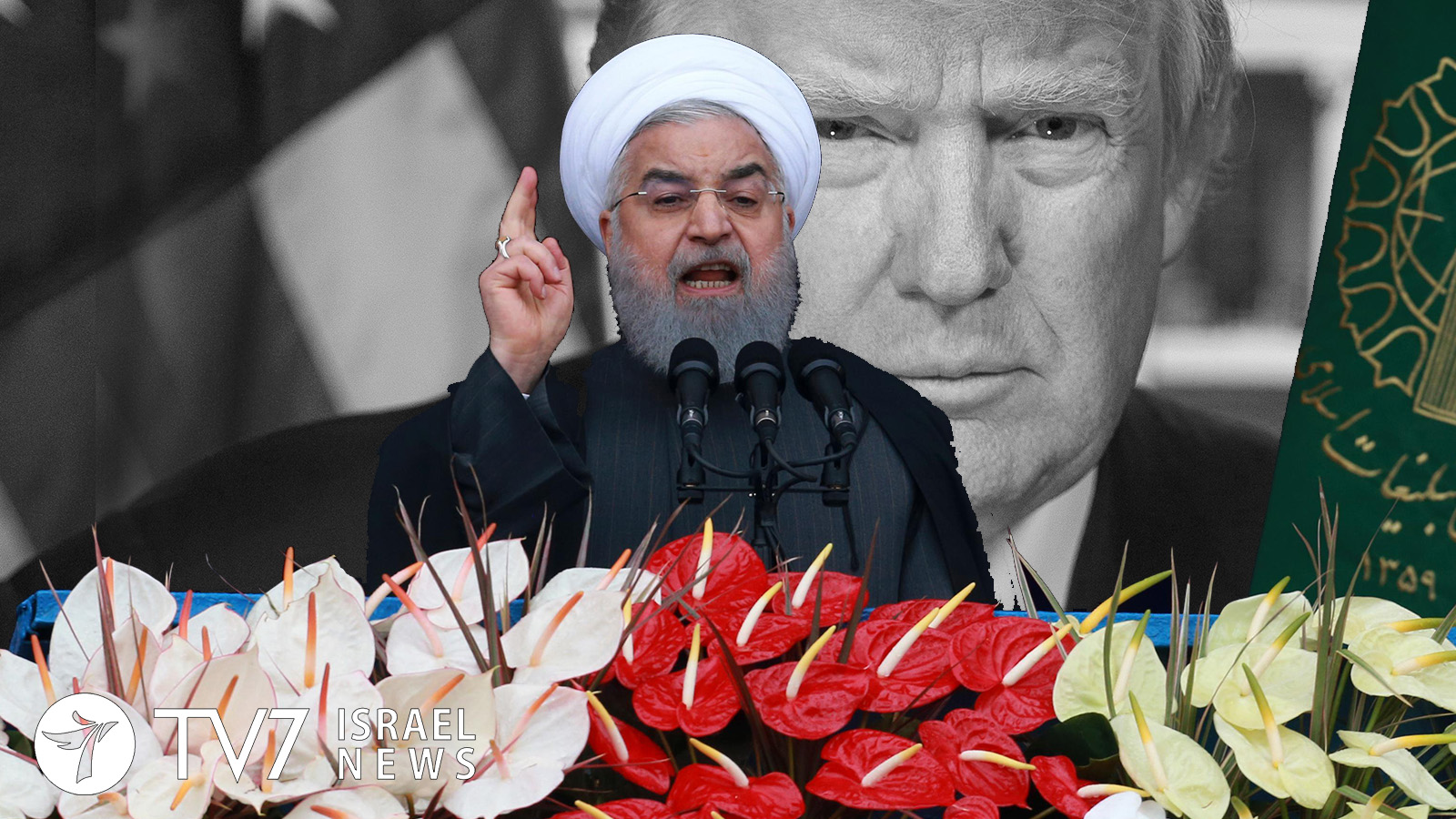Iranian leaders have once again made contradictory declarations over potential talks to deescalate tensions over nuclear development in the Islamic Republic.
President Hassan Rouhani declared readiness for “just” negotiations on Wednesday (July 24), but only if the terms did not amount to what he called “surrender.” Rouhani did not specify with whom Iran would be willing to negotiate, although the remarks were widely seen as referring to the United States.
“As long as I have the responsibility for the executive duties of the country, we are completely ready for just, legal and honest negotiations to solve the problems,” Rouhani said, according to his official website, adding, “But at the same time we are not ready to sit at the table of surrender under the name of negotiations.”
U.S. President Donald Trump withdrew from the landmark 2015 Joint Comprehensive Plan of Action (JCPOA) nuclear deal with Iran last year, but has said he is willing to hold talks with the Islamic Republic. Washington has imposed tough sanctions on Tehran in a “maximum pressure campaign” aimed at bringing the country back to the negotiating table.
Rouhani’s statement was released as Hossein Dehghan, the top military adviser to Iran’s Supreme Leader Ayatollah Ali Khamenei, was simultaneously reported to have proclaimed that Tehran would not negotiate with the U.S. under any circumstances. The statements were broadcast by Al Jazeera television, without provision of any direct citations attributed to Dehghan.
Dehghan, who is also a senior commander of Iran’s elite Revolutionary Guards Corps, appeared to take a firm line in response to Western proposals to bolster security in the Strait of Hormuz in the wake of Iran’s seizure of the British-flagged Stena Impero oil tanker last Friday. The Islamic Republic’s capture of the ship followed the impounding of the Iranian Grace 1 oil tanker by British Royal forces near Gibraltar, on suspicion it was heading for Syria in defiance of EU sanctions.
Dehghan allegedly threatened that Iran would take action if the status of the Strait were altered, and said that no country would be allowed to ship oil through it unless all countries can.
The United Kingdom today revealed that the HMS Montrose warship will now accompany all British-flagged vessels through the Strait of Hormuz in defense of navigational freedom. The statement marks a shift in policy following previous governmental announcements that the UK lacked sufficient military resources for such an operation, in addition to the issuance of earlier advisories for British ships to avoid the Strait of Hormuz where possible, and to notify the navy if they must cross it.
The Gulf tanker crisis comes amid threats from Iran that it is prepared to end all of its commitments under the JCPOA and restore its nuclear program to the status quo ante, under which no limits inhibit any sectors of atomic development. The three European signatories – France, the U.K., and Germany – continue their efforts to salvage the unraveling 2015 accord.
French President Emmanuel Macron has renewed his efforts to initiate a mediation between Tehran and Washington over the dispute. During talks with Iranian Deputy Foreign Minister Abbas Araghchi in Paris, Macron reiterated his call on the Islamic Republic to return to compliance to the nuclear deal and take the necessary steps to ensure the deescalation of tensions in the Gulf. The French Foreign Ministry later issued a statement specifying that the meeting “served to remind the Iranian president’s envoy that we expect Iran to return quickly in accordance with its commitments under the Vienna Agreement and to take the necessary steps to engage in an essential de-escalation.”
Araghchi was the chief negotiator for the JCPOA under which Tehran agreed to curb its atomic program in return for relief from economic sanctions.
In a bizarre related development, the Iranian Tasnim news agency has cited “informed sources” claiming that Israel assassinated the late Director General of the International Atomic Energy Agency, Yukiya Amano. According an IAEA notice, the 72-year-old Japanese diplomat died on July 18, although no specific cause of death was revealed. The Amano family reportedly waited to inform the UN nuclear watchdog organization of his death, so that his funeral could be held in privacy.
Ill health reportedly caused Amano to miss a key board meeting last week for the second time in less than a year, and it was also widely believed to be the cause he was slated to leave his post by next March rather than the end of his term in November 2021.
According to the Tasnim report, Tehran officials believe Jerusalem decided to “eliminate” Amano after he resisted “heavy pressures” by Israel and the U.S. to “fabricate allegations” that Iran violated the JCPOA, with the intention of filling the IAEA directorate with a more agreeable candidate.
Israeli officials have so far declined to respond to the spurious allegations.
